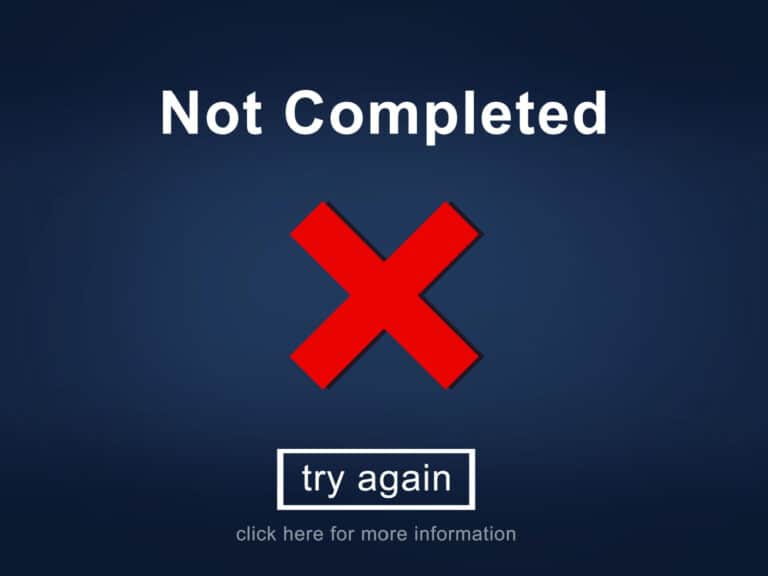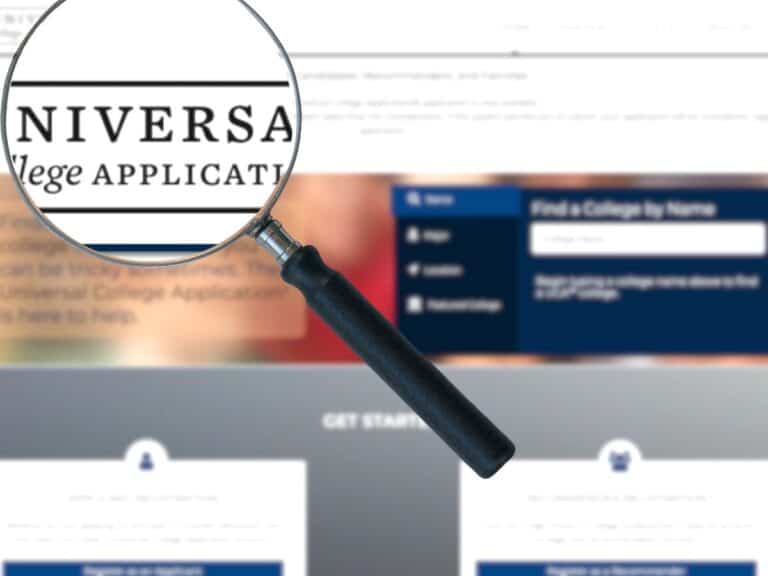What is The Coalition Application?
The Coalition Application or Common App is a college application platform that students can fill out once and use to apply to several different colleges and universities. To date, based on the Coalition App’s website itself, there are more than 170 Coalition schools, and some of them include the following:
- Amherst College
- Arizona State University
- Bowdoin College
- California Institute of Technology
- Columbia University
- Harvard University
- Tufts University
- University of Pennsylvania
- Wesleyan University
Applying to institutions that accept the Coalition Application? Read on!
In this post, we will talk about a lot of the most important things you need to know about this central college application portal before creating an account with it. I will also guide you into filling out the different sections of the Coalition App, giving you some tips along the way on how to make yours a standout.
The Coalition App vs. Scoir: What’s the Difference?
Simply put, the Coalition Application is the platform used by high schoolers for applying to colleges and universities, while Scoir (pronounced “score”) is the technology, in particular an online software, to which the Coalition App is integrated. It was back in 2022 when the Coalition App created a partnership with Scoir.
Here’s another way to put it: the Coalition App is powered by Scoir.
Founded in 2013, Scoir is a college admissions network that’s cloud-based, and it’s created to increase college accessibility as well as improve student outcomes. Other than as a college search tool, Scoir can also be used as a digital filing cabinet.
Prior to its partnership with Scoir, the Coalition App, which was founded in 2015, was using the platform MyCoalition. The company that owns it rebranded it StandOut Admissions Network, and the Coalition App switched to Scoir. Since then, college-bound teens who want to apply to institutions via the Coalition App must first create a Scoir account, which comes for free.
Do All Colleges and Universities Accept the Coalition App?
Not all postsecondary institutions in the US accept the Coalition Application. As of this writing, there’s a total of 172 Coalition colleges and universities — 37 are public schools, while 135 are private schools. The Coalition App is partners with institutions that offer generous financial aid to low-income students.
Between the Coalition App and the Common App, more colleges in the nation use the Common App. As a matter of fact, there are more than 1,000 institutions that accept the Common App.
It’s not that not too many colleges and universities prefer the Coalition App.
Here’s the reason why it has considerably fewer partner schools than the Common App: the Coalition Application is specifically designed to make the college application process easier for low-income students as well as first-generation ones, connecting them to institutions of higher education that offer the most financial aid to minimize student debt.
You can click here to explore all Coalition schools by name or state or by category (public and private).
Does the Coalition App Come With a Fee?
Creating an account with the Coalition Application comes for free. However, applying to colleges and universities using it comes with a fee, which is set by each institution. The average cost of applying to college through the Coalition App is $50. Students who are eligible for the fee waiver, however, may apply for it.
The Coalition App comes at no cost, which is also the same as the Common App.
Unfortunately, applying to institutions via the Coalition App requires you to pay the application fee that each of them requires — it can be as low as $30 to as high as $75 or even more.
Students from low-income families need not fret about this matter because the Coalition Application makes applying for an application fee waiver easy.
In the Fee Waiver section of the platform, which we will discuss in a few, college-bound teens simply have to check any boxes that apply to them to know which institutions will waive application fees.
The following are the criteria accepted by all Coalition member schools:
- Qualifying for the Federal Free and Reduced Lunch Program
- Receiving a College Board, ACT, and/or NACAC fee waiver
- Being eligible for a Pell Grant
- Participating in the Federal TRIO programs
Other applicants may also qualify for a fee waiver when applying through the Coalition App, including veterans and active service members as well as those who self-identify as the first in their family to go to college.
Do Colleges Prefer the Coalition App Over the Common App?
Colleges and universities that accept both the Coalition Application and the Common Application do not prefer one platform over the other. So, in other words, they look at both college application platforms equally. College admissions officers, besides, are more concerned with the quality of one’s application.
Whether it’s the Coalition App or the Common App that you will have to fill out will depend on which college application platform is accepted by each of the schools on your college list.
All of them accepting both the Coalition App and the Common App?
Then there’s no need to wonder if using one instead of the other will give you an edge in the admissions process. That’s because postsecondary institutions that accept both platforms do not have any favorites. As a matter of fact, many college admissions officers will tell you that you should pick something that you feel more comfortable using.
Of course, the Coalition App can work to your advantage (not in the admissions process but the college selection process) if you are after getting a generous amount of financial aid given that it came into being for the sake of low-income students.
But other than that, you will still have to meet and submit the requirements of the colleges of your choosing.
When Should You Create a Coalition App Account?
High school students should start signing up with the Coalition Application as early as possible instead of only when the college application season is nearing. The platform itself even suggests making an account as early as the 9th grade to start exploring colleges as well as filling out some parts of the Coalition App.
For some high schoolers, the best time to start considering applying to colleges and universities is as soon as they start their high school careers. This is especially true for those who see themselves attending competitive institutions.
Needless to say, teens may start registering for a free Coalition App account in their freshman year.
College application is a complex and stressful process, and starting early can make the junior and senior years of high school a lot less nerve-racking for those who are preparing for their undergraduate careers. And that is why it’s a wonderful idea to have a Coalition Application account as soon as you possibly can.
After signing up, you can start completing some of the sections.
The Coalition App also comes with the Locker, which allows you to store achievements, awards and others that you earn as you progress through high school.
How Do You Fill Out the Coalition App?
Completing the Coalition Application takes several steps taken in several days — the general consensus is that it will take an average student at least 8 weeks to fill the Coalition App and submit all the required documents. It makes sense to start signing up for a Coalition App account early and complete the different sections in order.
The following are the different sections of the Coalition App as well as some tips on filling them out:
Personal Information
Before anything else, it’s worth noting that it’s in the Personal Information section of the Coalition Application where you will find your Coalition Account ID, which will allow you to get perks from various community-based organizations (CBOs).
Check that everything you input should match what is on record at your high school such as your:
- Legal first, middle and last names
- Preferred first name (if different from your legal first name)
- Suffix
- Sex
- Social Security Number
Your current enrollment status, when you will graduate from high school or receive high school equivalency and whether or not you intend to apply for need-based financial aid will also have to be indicated in this particular section of the Coalition App.
Contact Information
The name of this Coalition App section pretty much explains what sort of things you will have to provide.
Colleges and universities need to know how to get in touch with you, which is why you will have to let them know your home phone number, mobile phone number and mailing and permanent address.
Simply put, your mailing address is the address where you get your mail — it’s where a college will send you your acceptance or rejection letter. On the other hand, your permanent address is where you live. And if your permanent address is the same as your mailing address, all you have to do is check the SAME AS MAILING ADDRESS box.
Demographic Information
When choosing an ethnic background, it’s okay to choose multiple ones — it’s perfectly fine and completely allowed by the Coalition App for college-bound teens to indicate several different ethnicities.
It’s also in the Demographic Information section where you will be asked to indicate the languages you can speak as well as your proficiency level in speaking them:
- Native
- Fluent
- Spoken only
- Written only
There is nothing wrong with including a language or two that you are not so fluent in, but remember to avoid exaggerating your proficiency in certain languages.
How awkward it would be if an alumni interviewer asked you a question in a language you lied you could speak well!
Citizenship Information
Of course, colleges and universities want to know the citizen status of anyone who applies to them.
Indicating whether you are a US citizen or a US dual citizen, therefore, is important when filling out the Coalition Application. You may also add another citizenship in addition to your US citizenship by clicking on the ADD A CITIZENSHIP button.
You will be asked, too, in the Citizenship Information section about your birthplace by indicating the following:
- Country
- State
- City
Family Information
College admissions officers want to obtain as many pieces of information about you as possible to determine who you are beyond your high school GPA and SAT or ACT scores.
And it’s exactly why the Coalition App has a Family Information section.
Your household size, the people in your household, the highest educational attainment and occupation of your parents or guardians, how many siblings you have and which ones are going to or have gone to college — all of these things about your family allow colleges to paint a better picture of you.
Don’t be too embarrassed if you are the first in your family to go to college as it can give you an edge in the admissions process. But don’t pretend that you are a first-generation student either just to get into a selective school!
High School Information
Your GPA will not only be looked at by college admissions officers — it will also be put into context to determine if you are indeed equipped academically and college-ready, too.
It’s due to this important step that the Coalition Application will ask you a lot of things about the secondary school you are attending in the High School Information section. Some of them include how classes are scheduled, the GPA type and scale used, cumulative GPA, class size and class rank (if used by your high school).
Clicking the ADD ANOTHER HIGH SCHOOL button allows you to add another high school, if necessary.
The last part of the High School Information section will require you to select your graduating high school — you just simply have to select your current high school if you only attended a single institution.
College Information
Applying to your top-choice college as a first-time, first-year student?
Then there’s no need to bother with the College Information section because it’s intended for transfer applicants only. And if you are a transfer applicant, the procedure is similar to filling out the High School Information section, except that you will also have to provide a few other details such as the number of college credits you have earned to date.
9th-11th Grade Coursework
One of the most time-consuming parts of the Coalition Application is the 9th-11th Grade Coursework section.
That’s because you will have to list all the high school courses you completed that count toward your high school graduation requirement for each grade, from the 9th to the 11th grade.
Remember the earlier suggestion that you should start creating a Coalition App account in your freshman year?
Doing so allows you to manage your time wisely and stay organized by completing this section of the Coalition App each time you finish a year in high school, thus saving you a great deal of energy when it’s time to apply to colleges.
12th Grade Coursework
Going about the section 12th Grade Coursework of the Coalition App is pretty much the same as working on the 9th-11th Grade Coursework section. However, the courses you will have to indicate are specific to your senior year of high school.
Of course, you will not be able to add the grades for the courses you are currently taking.
SAT/ACT
As the name pretty much suggests, this is the Coalition Application section where you will have to indicate the standardized test/s that you took as well as the scores you obtained.
Before doing so, you will have to make an important decision: to submit or not to submit your SAT or ACT scores.
All colleges and universities you are applying to test-optional schools? It’s therefore important to figure out if reporting your test scores can improve or harm your admissions chances.
The general rule of thumb is that you should consider submitting yours only if it falls within or above the average test scores of the most recent admits.
Checking the college’s website or common data set (CDS) is necessary for this procedure.
Additional Tests
Not applying to a US institution as an international student?
Then you can skip the Additional Tests section of the Coalition App — it’s meant for international students who need to prove their English proficiency with tests such as the TOEFL or IELTS to fill out.
Fee Waiver
Earlier, we discussed that the Coalition App is free to use but applying to many partner colleges and universities isn’t. We also enumerated the eligibility requirements for the application fee waiver.
In the Fee Waiver section, check the boxes that apply to you to see which colleges you can apply for free.
Honors & Distinctions
Received all kinds of honors and awards during your high school career? It’s in the Honors & Distinctions section of the Coalition Application where you can let college admissions officers know about them.
Alas, you can only name up to 5 different ones, so make sure that you include the most impressive of the bunch — the more students competed for the awards you won, the more your application can stand out. It’s also a great idea to include those that are the most meaningful to you as well as made the most impact on you.
Just a tip: do not use acronyms that colleges and universities may not be familiar with.
Academic Interests
It’s in the Coalition App section called Academic Interests where you can specify your intended major. You can enter up to 3 of them: your first choice, second choice and third choice.
Undecided like up to 50% of college-bound high school teeners?
There are 2 ways to go about filling out the Academic Interests section:
- Choose UNDECIDED from the drop-down list
- Specify 1 to 3 majors that you feel you are interested in — you are allowed to change your mind, anyway
Activities/Experience
It’s in the Activities/Experience section of the Coalition Application where you will indicate all your extracurriculars.
While the Common App allows college applicants to include up to 10 activities, the Coalition App only has space for up to 8 of them. So, in other words, it’s a must that you choose carefully which ones to include if you have plenty of EAs.
Each time you add an activity, you will be asked to provide the following details:
- Position/leadership description
- Organization name
- Description (including accomplishments and recognitions received)
- Participation grade levels
- Hours and weeks spent per year
When asked to provide additional information such as activity and position descriptions, maximize the word count limit by going straight to the point and using strong action verbs and providing figures where applicable.
You will also be asked if you intend to participate in a similar activity in college.
Obviously, answering yes is a plus since college admissions officers want students who will actively participate in and contribute to the campus community, although you must really mean it.
Just a couple of other tips when completing the Activities/Experience section:
- List your extracurriculars starting with the most meaningful to you
- It would be great if some of your EAs correlate with your intended major
Coalition Essay
And now, we have come to the section of the Coalition App that can have a lot of impact on the outcome of the entire college application process: the Coalition Essay.
Whether you are applying to 2 or as many as 20 colleges and universities, you will have to compose only a single Coalition App essay, which is also referred to as the college application essay or personal statement.
While you will have to write 1 essay only, you have 5 different Coalition App essay prompts to choose from.
The Coalition App itself says that there is no perfect length for a supplemental essay. However, it recommends aiming for 500 to 650 words. The platform also provides a text box in which you can compose your essay — you may also compose sans any font formatting it using your favorite word processor, and then paste it on the Coalition App.
Do take note that some colleges and universities may require you to submit additional essays.
Also referred to as supplemental essays, how many of these college-specific essays you will have to write will depend on the requirements of the institutions you are applying to via the Coalition App.
Disclaimer: The views and opinions expressed in this article are those of the authors and do not necessarily represent those of the College Reality Check.

![How to Apply to College with the Common App [Video Tutorial]](https://collegerealitycheck.com/wp-content/uploads/common-app-application-768x576.jpg)


